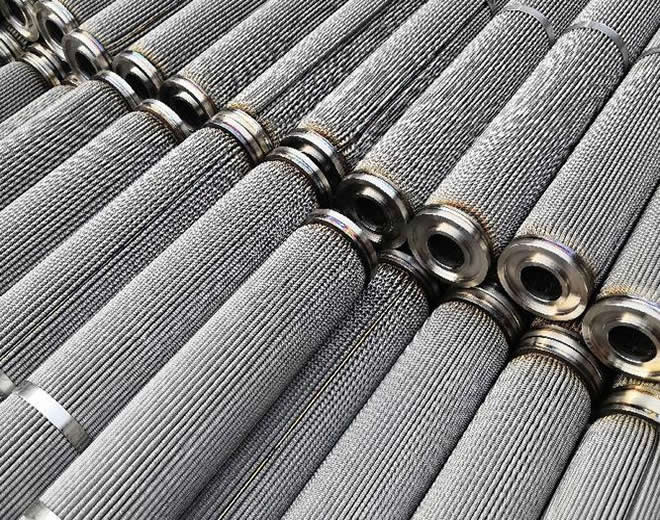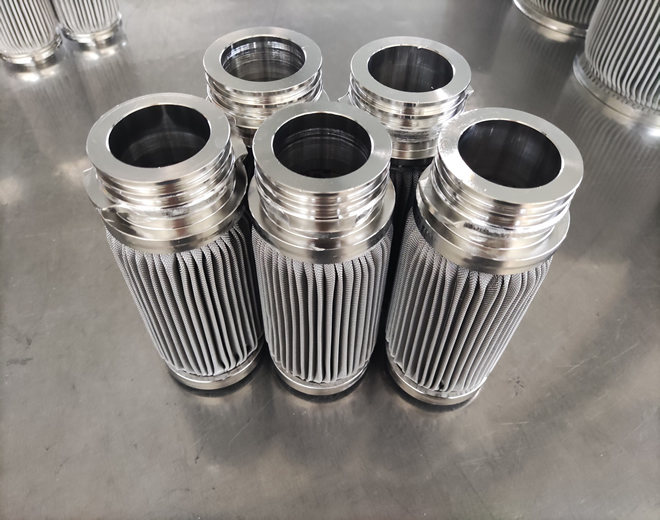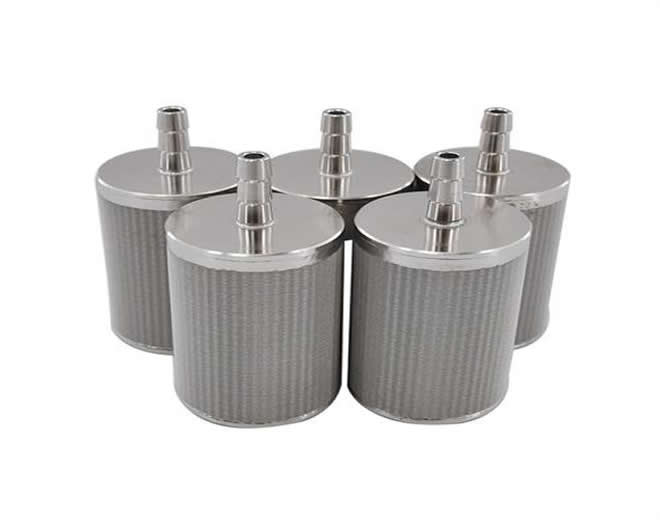Stainless steel wire mesh pleated filter elements are primarily used in the following two critical systems of offshore wind turbines:

Gearbox Lubrication System:
Role: Acts as the "kidneys" of the gearbox.
Function: The gearbox is the costly power core of the wind turbine. During high-speed, heavy-load operation, gears and bearings generate metallic wear debris. The filter element continuously cleans the lubricating oil, effectively removing these wear particles and other contaminants to prevent abrasive wear. This significantly extends the service life of the gearbox and avoids costly unplanned downtime.
Hydraulic System:
Role: Acts as the "scavenger" for the hydraulic system.
Function: The pitch system and yaw system rely on clean hydraulic fluid to operate. The internal clearances within hydraulic valves, pumps, and actuators are extremely precise. By maintaining fluid cleanliness, the filter element ensures sensitive valve response and stable pressure, guaranteeing precise control of wind turbine blade pitch and orientation, thereby enhancing operational safety and reliability.
Addressing the Harsh Offshore Environment:
The high-salinity, high-humidity offshore environment demands excellent corrosion resistance. The stainless steel construction of the filter element perfectly meets this requirement, resisting salt spray corrosion and ensuring the filter itself does not become a source of contamination, offering a longer service life compared to onshore alternatives.
Its superior filtering performance stems from its ingenious design, which can be understood through three key features: "Wire Mesh," "Pleated," and "Stainless Steel."
1. Stainless Steel Wire Mesh — The Foundation of Filtration
Surface Filtration Mechanism: It primarily operates on a surface filtration principle. The filter medium consists of multiple layers of stainless steel wire mesh with different mesh counts, forming a layer with uniform pore sizes. Contaminants (solid particles) are retained on the surface of the filter material, rather than inside it.
Advantages: High mechanical strength, resistance to collapse; stable filtration rating; particularly suitable for cleaning and reuse (in less critical applications).
Depth Filtration Assistance: The multi-layer composite structure also creates a certain depth filtration effect, trapping finer particles.
2. Pleated Structure — The Soul of Efficiency
Increased Filtration Area: The flat wire mesh is formed into a continuous wavy (pleated) pattern and then wound into a cartridge. This structure increases the filtration area by several times compared to a flat sheet of the same size, all within a limited housing space.
Enhanced Dirt Holding Capacity: The large surface area means it can trap and hold a much greater volume of contaminants. This significantly extends the service life of the filter element, reducing replacement frequency—a critical advantage for maintenance-intensive offshore wind farms.
Ensured Flow Capacity: The pleated channels ensure oil can flow smoothly and evenly through the filter media, maintaining high filtration efficiency while keeping pressure drop low.
3. Complete Workflow
Dirty Oil Inlet: Unfiltered oil enters from the outside of the filter element.
Outside-In Flow: Under pressure, the oil passes from the outside of the cartridge, through the multiple layers of pleated stainless steel wire mesh, and flows toward the central core.
Contaminant Retention: Solid particles larger than the pore size of the filter mesh are effectively trapped on the outer surface or within the media layers.
Clean Oil Outlet: Cleaned oil exits through the central core of the filter element and returns to the system to protect the gearbox or hydraulic components.


